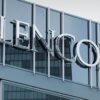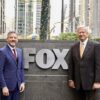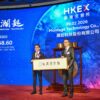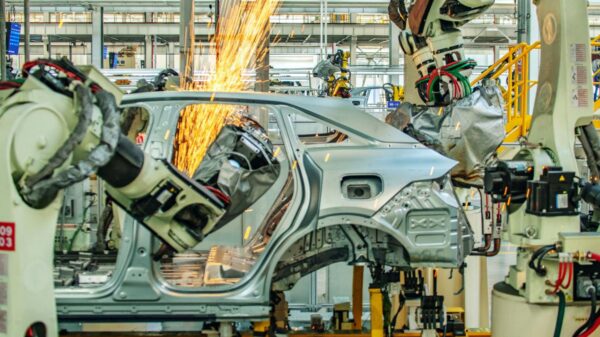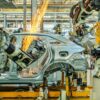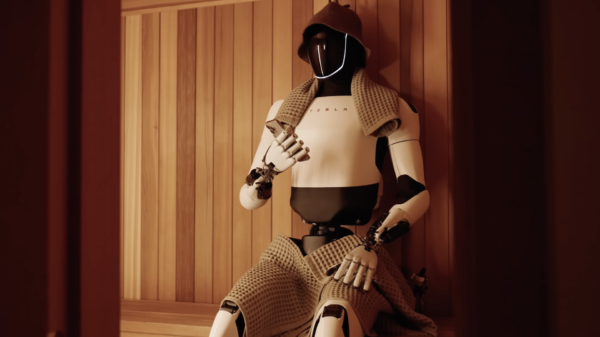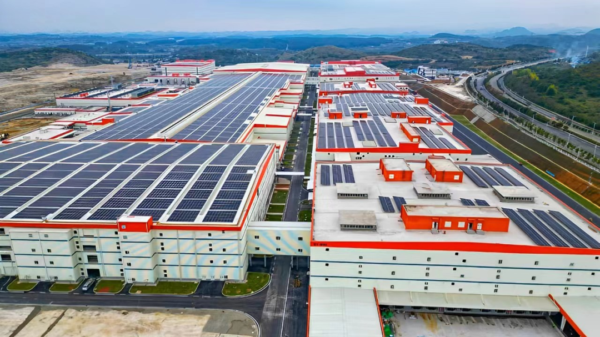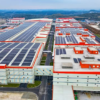The BMW Group (FWB: BMW) is looking to source battery cell components closer to vehicle production with the overall goal of localizing the supply chain for its primary materials.
BMW has brought on Belgian battery cell supplier Umicore as an additional partner to help develop a regional supply chain in North America. The company said on Monday that Umicore will provide cathode active battery materials to AESC, BMW’s battery cell supplier, from a newly established facility in Ontario.
In alignment with the company’s “local for local” principle, BMW’s partner company AESC is building a battery cell factory in Florence, South Carolina. The facility has an initial capacity of 30 gigawatt hours per year and uses renewable sources to build and produce cylindrical lithium-ion battery cells tailored for the sixth generation of BMW eDrive technology.
“The BMW Group pursues a globally balanced procurement strategy in the three main geographical regions of the world,” BMW Purchasing and Supplier Network manager Joachim Post said in a statement.
“Our battery cell supplier in the US will source key primary materials from Canada going forward.”
Read more: American Battery Technology starts operations at battery recycling facility in Nevada
Read more: Northvolt set to build lithium-ion battery factory in Quebec for $7B
BMW invests USD$1.7B to expand US production site
In October 2022, BMW’s chairman Oliver Zipse announced a USD$1.7 billion investment to expand the company’s US production site. This investment includes the allocation of USD$700 million for the construction of BMW Group’s new assembly center located in Woodruff, South Carolina.
This facility is set to supply high-voltage batteries for forthcoming fully-electric BMW X models. The facility spans 93,000 square meters and will focus on the production of sixth-generation battery modules, and contribute over 300 new jobs.
The upcoming sixth-generation battery format increases energy density by over 20 per cent while enhancing charging speed and extending effective range by up to 30 per cent.
BMW states that efforts will also be made to reduce CO2 emissions associated with cell production by as much as 60 per cent. This reduction will be achieved through two key strategies: cell suppliers will increasingly rely on renewable energy sources for production, and significant portion of secondary materials will be incorporated into the raw materials, including lithium, cobalt and nickel.
Read more: American Battery Technology gets government contract for low cost battery materials
EV demand has been steadily increasing
The demand for electric vehicles has been on a steady incline in recent years fuelled by a growing global awareness of environmental concerns and a shift towards sustainable transportation. As governments and regulatory bodies implement stricter emissions standards and incentives for green mobility, consumers are increasingly considering EVs as a viable and eco-friendly alternative to traditional gasoline-powered vehicles.
Tesla, Inc. (NASDAQ: TSLA) is renowned for its innovative electric cars, Tesla has impacted the automotive market with its cutting-edge models like the Tesla Model S, Model 3, Model X and Model Y. Beyond electric vehicles, Tesla has also made substantial contributions to autonomous driving technology.
Nissan Motor Co. Ltd. (TYO: 7201) is known for its completely electric, Nissan Leaf. Nissan has been at the forefront of advancing electric mobility, actively developing EV technology and investing in infrastructure initiatives to support the growth of electric vehicles and charging networks. Meanwhile, General Motors (NYSE: GM), which introduced the Chevrolet Bolt EV in 2016, has plans to introduce a wider range of electric models in the coming years.
.



